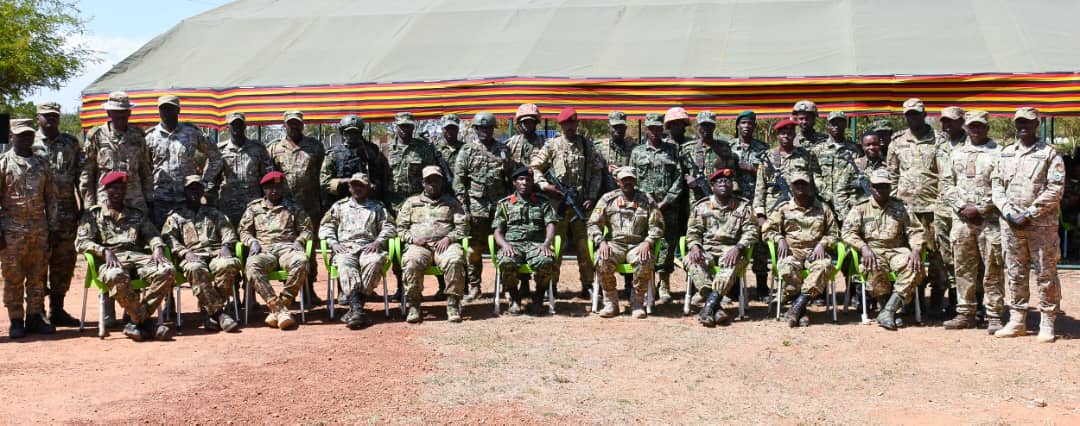By Fr. Dr. Paulino Mondo
Uganda is crafting a new chapter in her history—one of resilience, prosperity, and pride—penned not by chance, but by the deliberate actions of her heroes. From the north to the south, east to west of the Nile, Uganda stands tall, basking in the glory of achievements birthed through courage and sacrifice. At the center of this national renaissance is President Yoweri Kaguta Museveni, the architect of the 1986 People’s Revolution that gave birth to the modern Ugandan state.
From Bush to Brilliance
Since the National Resistance Army (NRA) triumphed in 1986, Uganda has emerged as one of Africa’s fastest-growing economies. International analysts, including Ernst and Young, now consider Uganda one of the most attractive investment destinations globally. With a stable and visionary political agenda—most notably “Kisanja Hakuna Mchezo”—the country has sustained an average annual GDP growth of over 6%. From a meager Sh3.4 trillion in 1986, the GDP has surged to Sh24.1 trillion by the 2023/24 financial year.
But Uganda’s transformation is not limited to the economy. It is a national rebirth that spans infrastructure, education, health, and governance. As the Rukiga proverb says, “They tried to bury us; they didn’t know we were seeds.” These seeds of hope, nurtured in adversity, are now yielding fruit for generations to come.
Uganda: The Next Big Thing
Dubbed “The Pearl of Africa” by Winston Churchill in 1908, Uganda’s intrinsic beauty, cultural diversity, and natural wealth have long captivated global observers. Yet what is now gaining global attention is Uganda’s steady climb toward sustainable development. From the ashes of colonial disruption and post-independence upheavals, Uganda has reclaimed her narrative.
Before independence in 1962, Uganda’s economy was already thriving, driven by exports such as cotton, coffee, and tobacco. The 1966 political crisis stalled that momentum, but in recent decades, consistent peace and national security have allowed Uganda’s growth to resume. Today, sectors like tourism, agriculture, services, and industrialization are fueling a 6.2% growth rate. This progress has been made possible by the vision and fortitude of Ugandan heroes who secured peace and stability.
A Military Powerhouse, A Peace Exporter
While economic milestones are celebrated, another transformation is often underplayed—Uganda’s rise as a respected military power in Africa. The Uganda People’s Defence Forces (UPDF), born from the NRA, now plays a leading role in regional peacekeeping efforts. From Somalia to South Sudan, Uganda’s forces stand tall, earning admiration for professionalism and courage.

Key battles such as the Battle of Katonga Bridge, the Luwero Triangle campaign, and the Corner Kilak operations are etched in national memory. These victories were more than military triumphs—they were turning points that restored national dignity, repelled neo-colonial domination, and affirmed Uganda’s rightful place on the world stage.
Winning Battles, Building Prosperity
Today, Uganda continues to fight a new kind of battle—one waged through soft power. Initiatives like Operation Wealth Creation aim to empower citizens economically, ensuring no Ugandan is left behind in the prosperity journey. This fight for financial liberation is ongoing, and it requires the same unity, discipline, and foresight that delivered political freedom.
Critics who portray Uganda’s rise as automatic ignore the historical wounds and systemic imbalances entrenched by colonial rule. The 1900 Buganda Agreement, for instance, institutionalized land inequality, sowing seeds of socio-economic division. As scholar Walter Rodney noted in How Europe Underdeveloped Africa, Uganda’s underdevelopment was not accidental—it was engineered. Today, however, that trajectory has been reversed by Uganda’s own people.
The Spirit of Resistance Lives On
From the heroic resistance of Omukama Kabalega and Kabaka Mwanga to the colonial rebellion at Fort Patiko and the courage of Ankole’s people against sub-commissioner Harry George Galt, Uganda has a rich history of defiance against oppression. The 1986 declaration of Fundamental Change by President Museveni was not an isolated act—it was the culmination of generations of sacrifice.
Since then, Uganda has blossomed. Roads, schools, and hospitals have multiplied. Access to education and healthcare has expanded. The UPDF is no longer a rebel force but a formidable and disciplined national institution. Ugandans—at home and abroad—now enjoy freedoms their forebears could only dream of.
A Nation United in Purpose
Ugandans in the Diaspora share a common bond with those at home: a collective destiny. The widespread support for the NRA/UPDF and the National Resistance Movement (NRM) is rooted in the sense of national purpose they have cultivated. Their leadership has strengthened regional integration, boosted intra-African trade, and facilitated free movement.
Today’s heroes are not only in uniform. They are the teachers shaping future generations, the farmers feeding the nation, the nurses and doctors safeguarding lives, and the immigration officers and tax officials keeping Uganda on course. All of them are heroes because Uganda, under the stewardship of its chief hero, has made them so.
Looking to the Future
As we look ahead, let us draw inspiration from the NRA/NRM’s legacy—resilience, patriotism, and unwavering commitment to peace. Uganda’s future must be shaped by unity, regional solidarity, and a firm stance on sovereignty. Let us continue to:
- Promote unity and a collective voice for East African and African integration.
- Deepen cooperation between states for mutual prosperity.
- Safeguard our independence and sovereignty.
- Eradicate the last vestiges of colonialism and foreign domination.
With peace, we seek no war. With sovereignty, we place Uganda first. With friendship, we embrace all nations as partners, not adversaries.

Conclusion: A Time to Celebrate and Rebuild
As we mark Heroes Day, let our minds travel from the Luwero Triangle to Katonga River, across the Nile Valley to the Kidepo plains. There, we see the tree of freedom standing tall—nourished by the blood, sweat, and courage of generations. Today, we reap the rewards of their sacrifice. Let us now rise to the task of rebuilding our country into an icon of prosperity, peace, and solidarity—worthy of admiration across Africa and the world.
For God and My Country.




